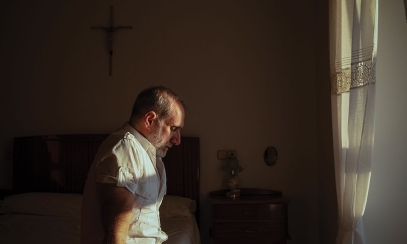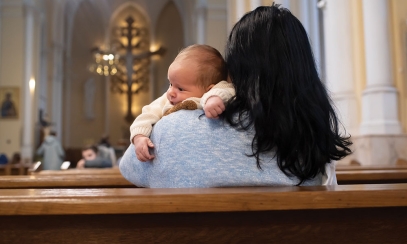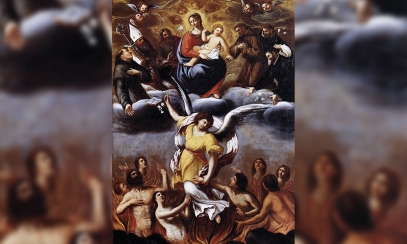
How can I know when I’m just making excuses?
I know that I make excuses. My family members point that out to me, and my friends (my very close friends) have told me that my excuse-making makes it difficult to trust me. But most times they don’t feel like excuses to me, they seem like the real reasons I’m late or don’t do what I had said I would do. How can I tell the difference between excuses and real reasons?
I know that I make excuses. My family members point that out to me, and my friends (my very close friends) have told me that my excuse-making makes it difficult to trust me. But most times they don’t feel like excuses to me, they seem like the real reasons I’m late or don’t do what I had said I would do. How can I tell the difference between excuses and real reasons?
This is a very good question. Possibly even better than your question are your friends and family members who are willing to be honest with you. Unfortunately, there are times when the people who could speak most clearly into our lives are too hesitant to do so because they do not want to upset or offend. These people clearly love you.
One other observation before I offer thoughts on your question: The fact that these people in your life have brought up a difficult topic also indicates something about you. Clearly, they not only love you enough to tell you the truth, but they also trust your character enough to believe that you will receive their correction in good faith. That says a lot about the quality of person they think you are.
Let’s get to the heart of your question. Our experience tells us that there can be a real difference between an excuse and a genuine reason.
I’ve seen that one difference between a reason and an excuse is that a reason is a fair and logical justification, whereas an excuse is a pretense that does not justify one’s actions. In this sense, one’s reason is actually connected to the outcome (it logically follows from one to the other). For example, “I can’t come to your wedding because I’ve already committed to another wedding that day.” On the other hand, an excuse would not necessarily lead into the consequence. You could think of the cliche, “Oh, I’m washing my hair that night …”
While I agree with the above differences between a reason and an excuse, I believe that there is an even deeper and possibly more significant discrepancy. A reason is almost always associated with the individual taking some degree of personal responsibility, whereas an excuse is an attempt to avoid personal responsibility. With an excuse, I am redirecting the blame toward something, anything, other than myself, my choices, or my preferences. This is one of the reasons your family and friends are struggling with counting on you. When you don’t do what you said you would do, there is always someone else to blame.
Reasons, however, will almost always involve taking responsibility.
Now, a reason might be a bad reason or a good reason. For example, a person might say, “I was late because I overslept my alarm.” Obviously, that is not a good reason for being late, but they are not making an excuse for themselves. It is clear from their language that they are the one who overslept and that the fault lies with their choice to not get up in time. On the other hand, an individual might have a good reason, like, “I left the house with plenty of time, but there was an accident on the freeway that blocked traffic for an hour.” In this case, they are legitimately not to blame and are simply giving the relevant information so that the other knows why they were late in this particular case.
This is all interesting (I think), and it hopefully casts some light on the degree to which we strive to be reliable and honest with the people around us. But there is something more at work here. What does a tendency to make excuses have to do with a person’s relationship with God?
Well, I wonder if too many of us make excuses for our bad behavior with God. I wonder if we have a tendency to deceive ourselves regularly when it comes to our sins and our lack of prayer or virtue. For example, how many of us would excuse our pride by saying that it is “justifiable self-consciousness”? Would we excuse our impure words by saying that they are “just jokes”? Is our anger at others only “self-defense” or our gossip and slander “just making conversation”? Are unjust business practices merely the result of lawful competition in the marketplace? How many times might we excuse our lack of prayer or our lack of Sunday Mass by almost any pretext (we were out of town, life is busy these days, the kids don’t like going, etc. …)?
We have to acknowledge that none of these are reasons. They are all entirely excuses. Even more than that, they are deceptions. We use these excuses to deceive ourselves into giving ourselves a pass and avoiding doing what God has asked of us.
If I want to know whether or not my excuses are good reasons, I think a good practice would be to pray with one’s death. What would it be to present these “reasons” before the God who knows everything? Would they be genuine reasons or would they be mere excuses? Would that moment reveal to our honest heart that we have been deceiving ourselves? Say what you will about death, but death ends the deception. Standing before God, we will have to stand in the bright light of truth, where no excuse has a place to hide.
During this season, practice dying. Practice placing yourself in the presence of God as you are. Ask him to end the deception and reveal to you where you might be making excuses. This might be painful, but better to do this now while we can still ask for grace and mercy than later, when there will be no more chances to abandon our excuses.
I wonder if too many of us make excuses for our bad behavior with God.”
Father Michael Schmitz is director of youth and young adult ministry for the Diocese of Duluth and chaplain of the Newman Center at the University of Minnesota Duluth. Ask Father Mike is published by The Northern Cross.



